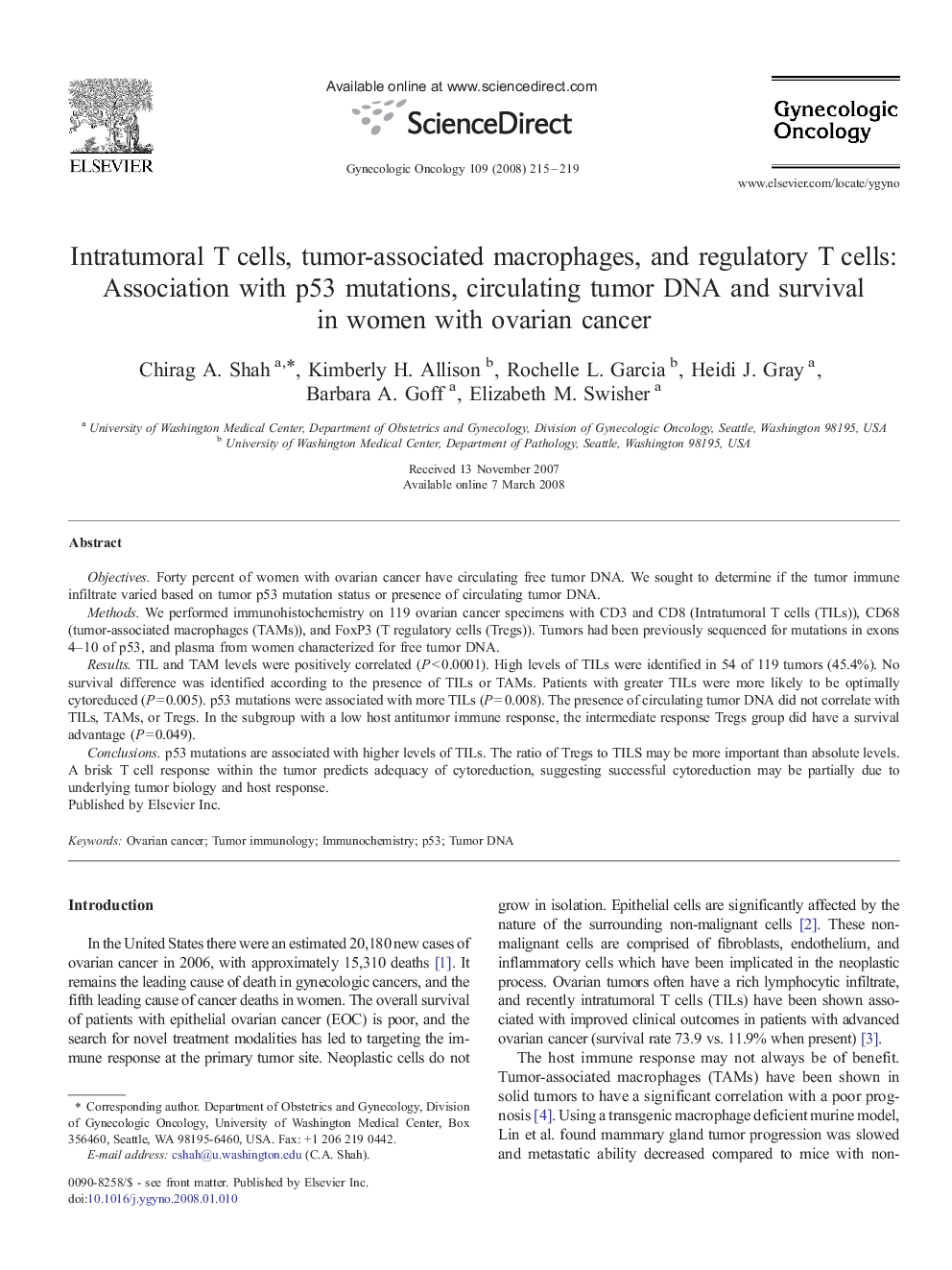| Article ID | Journal | Published Year | Pages | File Type |
|---|---|---|---|---|
| 3947522 | Gynecologic Oncology | 2008 | 5 Pages |
ObjectivesForty percent of women with ovarian cancer have circulating free tumor DNA. We sought to determine if the tumor immune infiltrate varied based on tumor p53 mutation status or presence of circulating tumor DNA.MethodsWe performed immunohistochemistry on 119 ovarian cancer specimens with CD3 and CD8 (Intratumoral T cells (TILs)), CD68 (tumor-associated macrophages (TAMs)), and FoxP3 (T regulatory cells (Tregs)). Tumors had been previously sequenced for mutations in exons 4–10 of p53, and plasma from women characterized for free tumor DNA.ResultsTIL and TAM levels were positively correlated (P < 0.0001). High levels of TILs were identified in 54 of 119 tumors (45.4%). No survival difference was identified according to the presence of TILs or TAMs. Patients with greater TILs were more likely to be optimally cytoreduced (P = 0.005). p53 mutations were associated with more TILs (P = 0.008). The presence of circulating tumor DNA did not correlate with TILs, TAMs, or Tregs. In the subgroup with a low host antitumor immune response, the intermediate response Tregs group did have a survival advantage (P = 0.049).Conclusionsp53 mutations are associated with higher levels of TILs. The ratio of Tregs to TILS may be more important than absolute levels. A brisk T cell response within the tumor predicts adequacy of cytoreduction, suggesting successful cytoreduction may be partially due to underlying tumor biology and host response.
